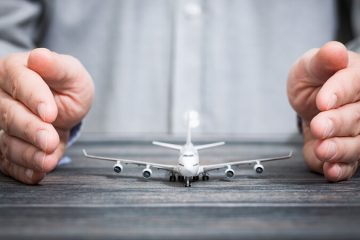Traveling for business involves a rigid schedule with stressful meetings and long flying hours. With such a demanding itinerary, it is very easy to overlook a healthy exercising regime and eating habits. The effects of regular business travel will wear one down and lead to a decline in the health of the individual. Therefore, it becomes essential to plan their eating habits and make mindful choices to maintain their health on business travel. Let us explore effective tips to assist travelers maintain their nutritional goals and prioritize their business travel diet along with the goals of the trip.
Tips to maintain a healthy business travel diet
1. Plan in advance
Most of the business trips are organized on short notice. It becomes hard to plan for these trips if you are a first-time traveler or are busy with your work at the office. It is a high possibility that you will miss out on planning for the trip and opting for healthy food options. However, giving an hour or two while researching the restaurants and eateries nearby your destination will help you with the food of your choice. You can make a schedule for your breakfast, dinner, and lunch and choose various fibrous and protein-rich food. You can also pack healthy snacks such as nuts, fruits, and energy bars to keep you energized and ready for the trip.
2. Stay hydrated
While traveling to hot and humid locations, you will likely lose out water through sweating and precipitation. As a result, you may feel tired and experience decreased cognitive functions. Therefore, being hydrated with appropriate liquid levels becomes highly essential. You should drink plenty of water and avoid the consumption of alcohol or sugary beverages. While it is a good hydrating agent, the latter can considerably dehydrate your body. You can also use various apps for reminding you to drink water at regular intervals.
3. Choose diet wisely

When we are out on business trips, it may seem a lucrative deal to treat ourselves to local delicacies after a long tiring meeting. However, it is not bad to sample them in small quantities, eating large amounts of junk food can result in weight gain and associated problems. Therefore, one should remain mindful and choose the dishes and food wisely. You should avoid eating fried and oil-rich food. Rather you should look for healthier alternatives such as lean proteins, whole grains, and green vegetables.
4. Prioritize breakfast
Starting your day off with a heavy breakfast will help you get through the day with ease. You can include eggs, whole grain cereals, yogurt, fruits, and other healthy beverages in your breakfast. You should avoid eating sugary pastries served in the breakfast buffet at the hotels and also stay away from the high-fat breakfast menu. Excessive fat and sugar can lower the energy in the long run and make you less focused on your work.
5. Lunch and dinner
While breakfast should be heavy, best diet for business travelers for lunch should be lighter and dinner should be the lightest meal of the day. You can mix-match numerous healthy dishes during lunch time while dinner should contain lesser quantity along with lesser calorie food. Additionally, the last meal should be made at the earliest in the evening. You should avoid late-night dinners and snacks to maintain a healthy diet on business trips.
6. Stay active
Though it may be 70% diet, the other 30% is exercise while maintaining a healthy routine. Therefore, you should make time to do some kinds of exercise and stay active on your trip. You can go for a 30 mins walk or make use of the hotel gym to lift some weights. You can also enquire and research about the activity center near the hotel you are staying at. To manage time you can take stairs instead of elevators whenever it is possible. Practice regular stretching and light exercise during small breaks to combat tiredness on a business trip.
7. Manage jet lag
Jet lag can result in dietary changes and over or under-eating. Hence, you should remain vigilant of the time and natural clock of your stomach. Ensure to eat at a regular duration as per your eating schedules and manage any lag with steady changes. Additionally, you should give your stomach time to adjust back to home-cook food after constant eating at the hotels. You should drink ample amounts of water to aid your stomach while adjusting to the natural diet.
Suggested Read: What Is Jet Lag And How To Handle It Like A Pro!
Maintaining a healthy diet while traveling for business requires planning, conscious decision-making, and a commitment to your well-being. By implementing these strategies and making mindful choices, you can ensure that your business travel experience is not only productive but also supports your health goals. Remember, a balanced diet and active lifestyle contribute to increased energy levels, mental clarity, and overall productivity—essential factors for successful business endeavors while on the go.
Suggested Read: Top 5 Health Tips For Frequent Business Travelers
Business Travel Diet FAQs
Is it easy to follow a healthy diet while on a business trip?
Yes, it is fairly easy if the traveler has the willpower to control themselves from local delicacies. Flights and hotels nowadays have multiple dietary options. One can choose their most preferable one and stick to their diet even on a business trip.
How to diet while traveling for work?
One should look for healthy options in restaurants. This includes grilled or steamed foods, vegetable salads, and protein sources. Travelers should practice mindful eating on business trips along with being active and doing exercises.
How to eat healthy while attending events and seminars?
Research the event and the food options they provide to their visitors. Scan the menu carefully for healthier items. Practice portion control while attending such long-duration events.
How to eat healthy while traveling for business?
Keep in mind that healthy heating boosts your productivity. Stay mindful of your goals, practice moderation, and make conscious choices.



